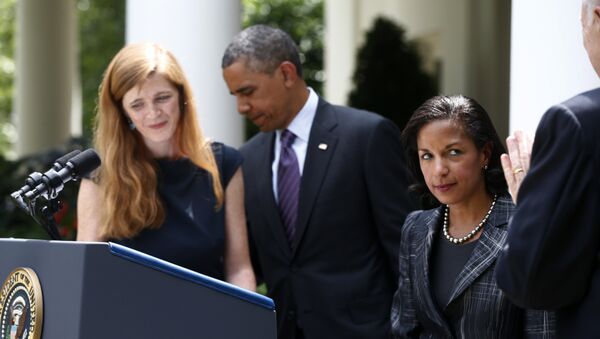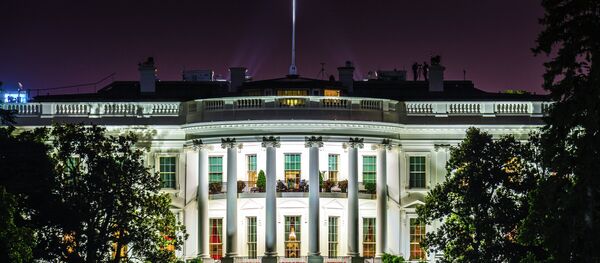Throughout the GOP primary season, Republican hopefuls have railed against all facets of the Obama administration, but perhaps none more so than the president’s foreign policy. Opponents criticize the White House of being soft on Daesh and perceived as weak to foreign adversaries.
Writers at Breaking Defense claim they have a point.
In matters of national security and foreign policy, the executive branch relies on the advice of the National Security Council. It consists of Cabinet officials and advisors handpicked by the president. During the administration of George H.W. Bush, the NSC consisted of 40 individuals. Under Obama, that number has ballooned to nearly 400.
A group that size inevitably makes it difficult to to create a coherent strategy.
"The basic rule is that you shouldn’t have so many people that you can duplicate the work of the departments," Brent Scowcroft, National Security Advisor to Presidents Gerald Ford and H.W. Bush, said during a 1999 discussion hosted by the Brookings Institution, according to Breaking Defense.
"I would say each of your geographic or functional area ought to have one or two people – rarely more. They ought to get the work from the departments, massage the word, keep you informed, and so on."
"I think there is a real danger in turning the NSC into another large bureaucracy, and I think it really needs to keep flexibility."
Current defense officials on both sides of the political aisle would certainly agree, according to Breaking Defense. The military news website claims that dozens of highly-placed government officials have “expressed deep worry about the issue and expressed exasperation with the administration’s conduct.
"They have been especially critical, regardless of party, of the performance of President Obama’s National Security Advisor Susan Rice."
For evidence of NSC ineptitude, Breaking Defense points to three examples: the shying away from Obama’s "red line" warning to Syria, the quiet decision to back out of joint operations in Syria one day before they were to begin, and the long delay in conducting Freedom of Navigation patrols in the South China Sea.
While most defense officials have quietly voiced their concerns, Arizona Senator John McCain has been more vocal, especially in regards to Beijing’s construction of artificial islands in the Spratly archipelago.
"The Pentagon’s puzzling silence about the operation led to confusion not only about what had taken place, but America’s strategic intent," McCain told Breaking Defense. "Five months to conduct what should be a regular and routine operation is too long."
"Whether these delays are the result of the micromanagement of the National Security Council or the bureaucracy of the Pentagon, they are unacceptable nonetheless."
The US has condemned China’s land reclamation projects as a violation of international law. Beijing maintains that the islands will be used primarily for humanitarian purposes.





